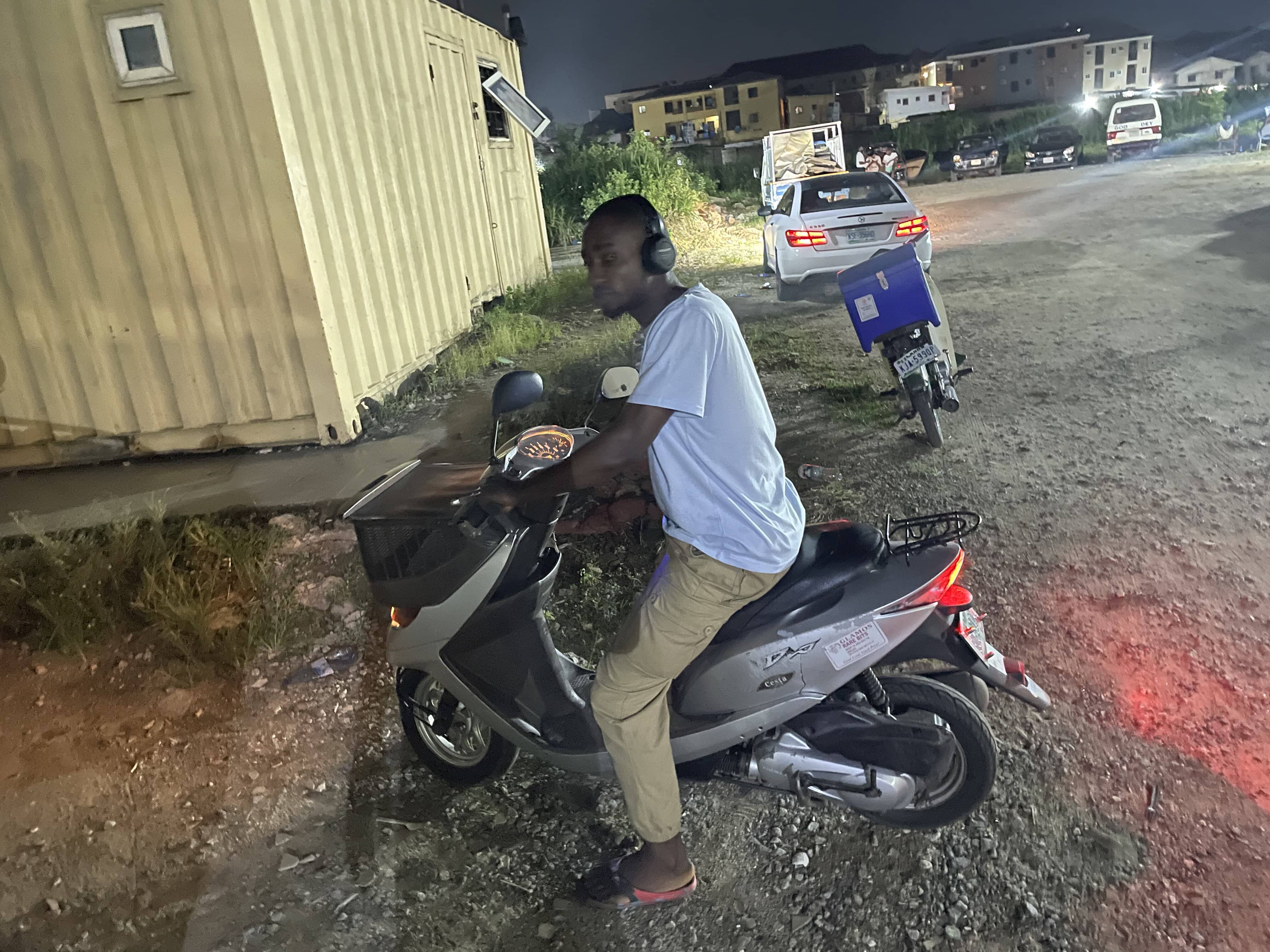If you come out of your home in the evenings, especially in the Somolu Local Government Area of Lagos Nigeria, a neighbourhood of Yaba, the Nigerian tech capital and home to many of the entry and mid-level tech employees, you would have seen them speed by on a delivery trip, with their baskets in front. They are members of the thriving scooter delivery riders network.
Snubbed by the Nigerian logistics industry dominated by players who gear their riders (or delivery agents) in helmets and huge boxes on the back of their motorcycles, these riders have been able to create something for themselves by building a network of riders and partnerships with vendors within their neighbourhood, especially with those who can’t stomach the rising cost of what has now become traditional food delivery models.
For one, their means of movement is cheaper. With under 200,000 naira you can secure a scooter for yourselves.
And so when these young men (many undergrads at the tertiary institutions that dote Yaba -Unilag, YabaTech) started buying their scooters and delivering food around the neighbourhood, it was cheaper and faster.
Scooter delivery riders have proliferated in recent months first because young Nigerians have become obsessed with home delivery rather than going out to get things. But more importantly, because the cost of delivery has only gone higher sometimes as much as 1,500 for food worth under 1500.
It didn’t make much sense.


Of scooter delivery riders?
A typical example is the story of Peter whom I spoke with.
Peter was working with a food vendor in the Yaba area. But late last year, customers started requesting faster and cheaper delivery. So, he told his boss about the scooters. He went to Oyingbo market and bought one and started delivering food, first exclusively for the vendor he was working with.
Later, he started speaking to other food vendors who were also facing similar problems with delivery.


With more traditional delivery models, the food was coming late because riders had to wait till the orders had reached a significant point before making trips. But with the scooter delivery riders, they can make trips with just one order starting from as low as 100 naira.
“Some of our customers want people to bring food for them, and some ask for the price and I started doing delivery for them,” Peter said of his foray into scooter delivery.
But what became just a handful of customers, has in the last few months become a network of riders. “People will call and say please I need a delivery in so and so place,” he said. And so he started delivering to other customers from other vendors.
Scooter delivery riders have become a sort of saving grace to meet up with the rising demands of their product. With the rise of social media food vendors, many do not own a shop or restaurant, processing delivering via DMs on social media and largely working from home.
Just like the tech riders and students who have made a thing of freelancing, they have broken away from the full regalia of delivery men, black clothes, huge boots etc, favouring shorts and slides instead.
And, they are able to empathise with the customers because in a few instances on some other days when they feel tired or outright lazy and they too become customers, ordering through the same network.
Regulation and revenue issues
But their rise hasn’t been without some discomfort.
“The first time I bought the scooter they asked me ‘where is your rider’s card?'” Peter said of his first run-in with the law. It wasn’t with the police. It was with the young men, mostly in mufti, who collect money from commercial cyclists as a form of tax. He had to buy a “riders card” from them which lasts for a year, to move freely delivering food in the neighbourhood.


Then he had a run-in with the police who demanded that he get a plate number. Then they added that he got a helmet as well. “God is always on my side,” he said of his encounter with the police.
On a very slow day, a scooter rider can make as many as fifteen deliveries in a neighbourhood within three hours, according to interviews with multiple scooter riders, averaging between 100 to 500 per trip.
How does one become a scooter delivery rider?
One becomes a scooter delivery rider by joining the network.
“What you’ll just do is once you get a scooter, you can go to all those Korede Spag and co, and let them know, in case they have orders,” he said. With relative notoriety, in no time, one can become a household name in the space, creating their own clientele.






